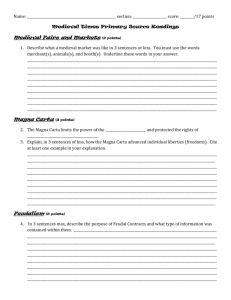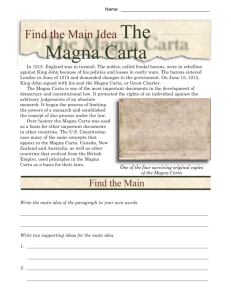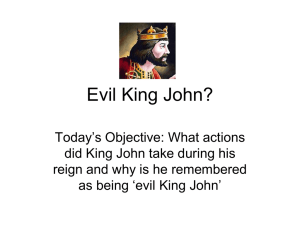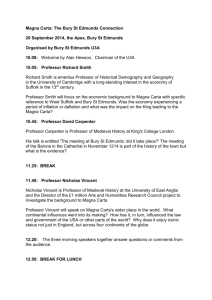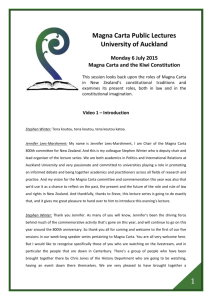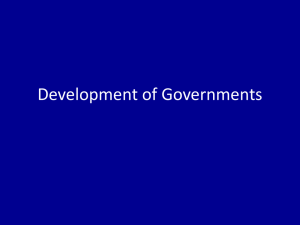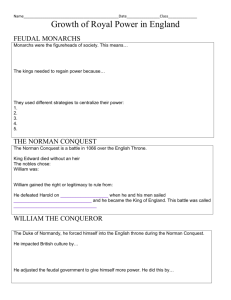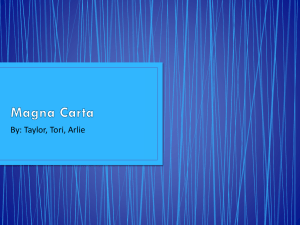INTERPRETING MAGNA CARTA
advertisement
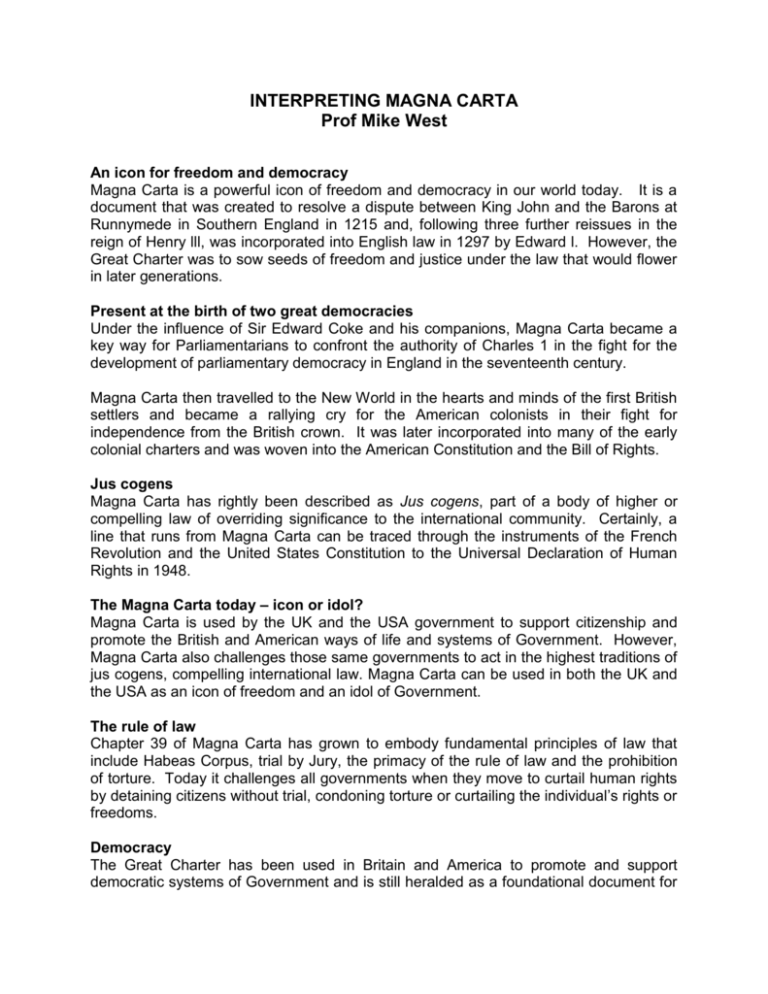
INTERPRETING MAGNA CARTA Prof Mike West An icon for freedom and democracy Magna Carta is a powerful icon of freedom and democracy in our world today. It is a document that was created to resolve a dispute between King John and the Barons at Runnymede in Southern England in 1215 and, following three further reissues in the reign of Henry lll, was incorporated into English law in 1297 by Edward l. However, the Great Charter was to sow seeds of freedom and justice under the law that would flower in later generations. Present at the birth of two great democracies Under the influence of Sir Edward Coke and his companions, Magna Carta became a key way for Parliamentarians to confront the authority of Charles 1 in the fight for the development of parliamentary democracy in England in the seventeenth century. Magna Carta then travelled to the New World in the hearts and minds of the first British settlers and became a rallying cry for the American colonists in their fight for independence from the British crown. It was later incorporated into many of the early colonial charters and was woven into the American Constitution and the Bill of Rights. Jus cogens Magna Carta has rightly been described as Jus cogens, part of a body of higher or compelling law of overriding significance to the international community. Certainly, a line that runs from Magna Carta can be traced through the instruments of the French Revolution and the United States Constitution to the Universal Declaration of Human Rights in 1948. The Magna Carta today – icon or idol? Magna Carta is used by the UK and the USA government to support citizenship and promote the British and American ways of life and systems of Government. However, Magna Carta also challenges those same governments to act in the highest traditions of jus cogens, compelling international law. Magna Carta can be used in both the UK and the USA as an icon of freedom and an idol of Government. The rule of law Chapter 39 of Magna Carta has grown to embody fundamental principles of law that include Habeas Corpus, trial by Jury, the primacy of the rule of law and the prohibition of torture. Today it challenges all governments when they move to curtail human rights by detaining citizens without trial, condoning torture or curtailing the individual’s rights or freedoms. Democracy The Great Charter has been used in Britain and America to promote and support democratic systems of Government and is still heralded as a foundational document for freedom and democracy. Today it challenges all governments to look critically at their own democratic processes and at the ways in which they encourage democratic development in others. Freedom from slavery Magna Carta has been used by abolitionists to combat slavery in both Britain and America and continues to be an icon of hope for groups that are oppressed in our world today. Today it challenges societies all over the world to identify and address issues of slavery wherever they are found. Deforestation Together with the Charter of the Forest (1217), Magna Carta preserved the rights of commoners (an indigenous people) to use the forests and therefore the common lands of England for subsistence. This often neglected aspect of Magna Carta speaks to indigenous peoples today who have lost their ancestral land or are in the process of doing so. Freedom of religion Chapter 1 of Magna Carta established the freedom of the English church from state interference and this has grown to enshrine the rights of each individual to enjoy religious freedom. Today it challenges faith communities to examine the part they might play in the development of a liberal democracy and to be part of the solution rather than part of the problem in international relations.


